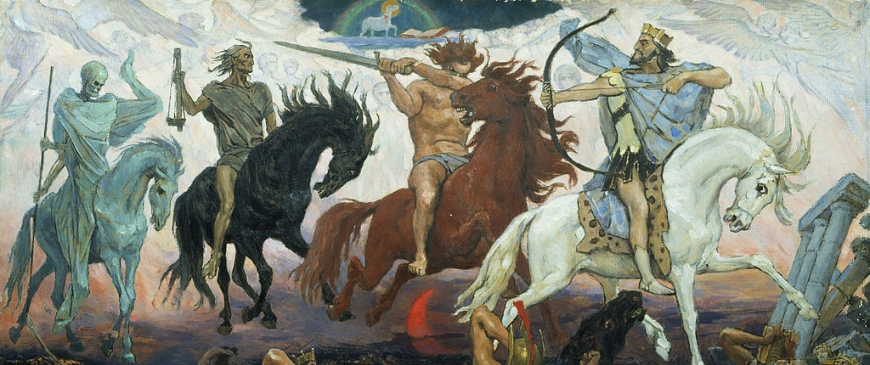
Beware the four horsemen circling Europe: Greece, Russia, migrants and the Brexit
Four horsemen are stalking Europe: the Greek financial crisis; illegal migration in the Mediterranean; Russian aggression; and Britain's reform-or-Brexit threat. Any of these could dominate the EU summit agenda: each could alter the fundamental character of the Union.
The risk of a Greek default and possible eurozone exit poses the most acute danger. Grexit would have unforeseen implications, not only for Greece, but also for the EU: it would question the eurozone’s overall direction towards greater integration, and have possible knock-on effects on other weaker members of the euro.
As a deadline approaches for Greece to repay the IMF €1.6bn, it seems that one side may give in. The Greek PM Alexis Tsipras now faces an uphill battle in the European Council, convincing sceptical creditors like Germany and Finland, or fellow debtors like Spain and Portugal, that a deal will not let Athens off easily. For a deal to stick, the Greek leader must also convince sceptical backbenchers that he is not caving in to demands from Brussels. He will want to get debt relief.
Russian aggression poses the second biggest threat, as it challenges the EU’s ability to protect the European order. People still die every day in eastern Ukraine. The Minsk-II ceasefire is flawed but most European governments are unwilling to give up on it. They think Russian help is needed with the Iran nuclear talks and solving the Syrian civil war.
The sanctions package has been extended for six months, and those sanctions linked to the annexation of Crimea for one year. One further step EU leaders could take this week is to reaffirm their pledge to increase defence spending made at Nato’s Wales summit last year. Stronger EU-Nato ties would send an important signal to Moscow.
Now for the third crisis. In the first six months of 2015, 1,868 migrants have died attempting to cross the Med from North Africa. According to the International Organisation for Migration (IOM), some 114.000 migrants have reached Europe, mainly Italy or Greece.
The EU is trying to look tough. This week, it launched an Italian-led mission to monitor the maritime movements of smugglers. European navies could board and seize migrant ships. For that to happen, a UN mandate is being drafted. Operations in Libyan waters to disrupt smuggling networks and destroy ships would be a controversial, third stage.
The tough debates in the Council will, however, revolve around the recently proposed quota system. This would alleviate the burden on countries such as Italy and Greece, and redistribute 40.000 asylum seekers across the EU. Many, including the UK, France and Central and Eastern European countries, object to this system.
But Italy feels abandoned by the rest of the EU and has threatened to give the migrants temporary visas so they can cross European borders. France has said that this might trigger French border controls. The Schengen border code allows temporary border controls in the event of a mass influx of migrants, but in this case its invocation would not be the result of an unexpected rise in migration, but by the breakdown of European solidarity. This could draw into question one of the foundations of the EU – the freedom of movement.
That leads us to the fourth issue which, although not a crisis (yet), will preoccupy European leaders for the coming year. The summit will give David Cameron a chance to outline his EU reform agenda ahead of the in/out referendum. But it will also give other leaders a sense of his willingness to compromise in Brussels and make the case for EU membership in Britain. This matters: the fewer allies Cameron has in the Council, the tougher the negotiations will be.
Taming these four horsemen will not be easy; it can only be done if governments prioritise a European solution over narrow national agendas. Multiple, simultaneous crises have become the new normal and EU leaders must confront this quartet of challenges if they want to keep the European Union from falling apart.
Rem Korteweg is a senior research fellow at the Centre for European Reform.
